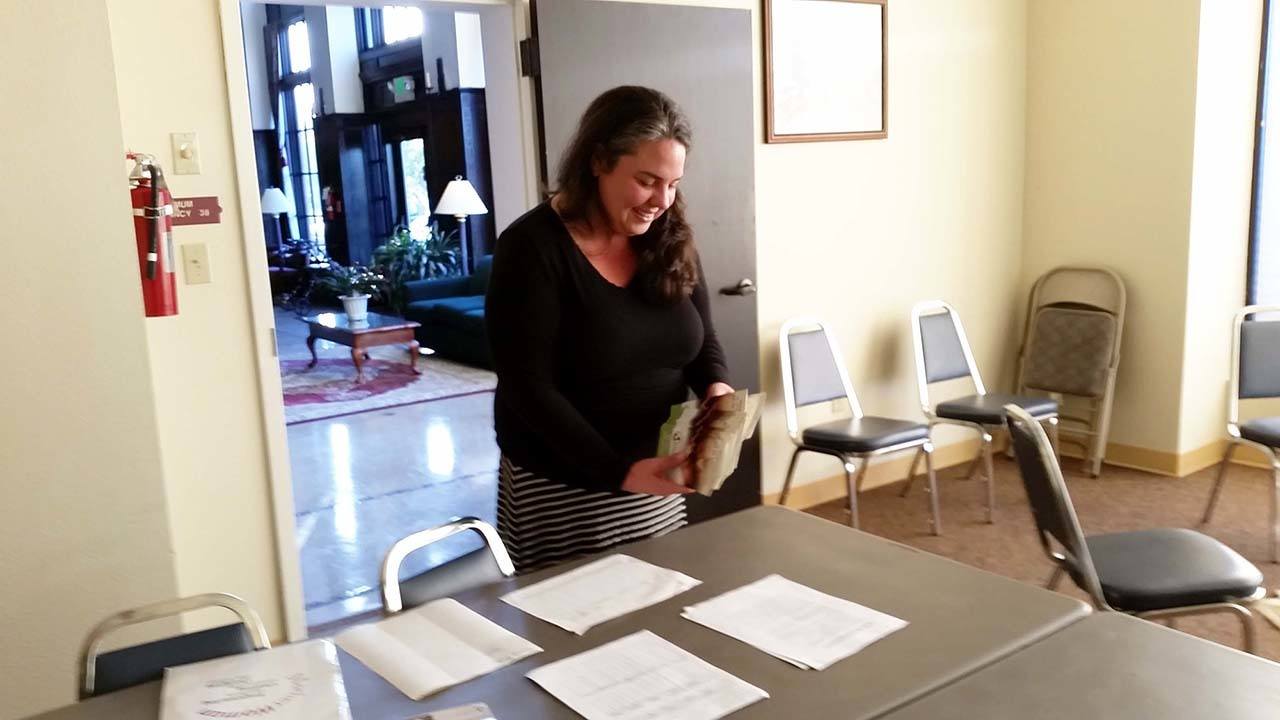Communities that have low-income wage earners, a high percentage of single-parent households, and significant levels of drug use and domestic violence have more mothers dealing with postpartum depression. Grays Harbor falls within this classification.
Open Windows, a drop-in support group for new mothers, meet on the second and fourth Monday of every month from 6 p.m. – 7:30 p.m. in the Emerson Hotel Community Room in Hoquiam. The program is funded by a grant meant to help serve locations at high risk for its new mothers who suffer from postpartum depression, said Mia Edidin, program director for Perinatal Support Washington.
“Support is the Number 1 protective factor against postpartum depression,” Edidin said.
And the group is there not only to help new mothers prevent it and cope with it but also to provide advice, support and references to all new mothers — even if they have older children, said Jasmine Marotta-Jaenecke, a midwife, and Amy Walker, a doula, the group’s leaders.
A midwife is a trained health professional who assists women who are healthy during labor, delivery, and after the birth of their babies. Doulas provide an expectant mother with physical, emotional and educational support.
“The idea of having a second child is easier, but in reality it’s twice as much work,” Walker said.
Walker explained the types of things that can worry new mothers. Some might be breast feeding and others might be using a bottle. Mothers feeding their babies one way might be concerned they are doing the wrong thing. She also said mothers raising children in a one-parent vs. a two-parent home feel judged. And vice-versa.
“We welcome every single member for who they are,” Walker said. “No judgments.”
Signs of postpartum depression can include feeling sad or having severe mood swings, insomnia or sleeping too much, excessive crying, difficulty bonding with the baby and drastic changes in one’s diet by eating too little or too much. Withdrawing from friends and family, feeling anxious, overwhelmed and feeling unable to concentrate or make decisions are also experiences most women go through after having a baby because of exhaustion and other factors, but could be brought on because of postpartum depression and why support is important for mothers who have recently given birth, Marotta-Jaenecke said.
She advised seeking immediate help if a mother is panicking, considering harming herself or the baby, having obsessive thoughts about the baby, going through paranoia (even if it’s in mild forms), suffering hallucinations or otherwise unable to care for herself or the baby as well as older children.
“Having a baby is an amazing time, but it can also be a challenging one. And an isolating one,” Marotta-Jaenecke said. “Baby blues are are normal and something everyone experiences, but postpartum depression is at the next level and something no one should experience alone.”
All three women said Grays Harbor County is a location where many residents qualify for various services, but don’t access them. Though there aren’t a large variety of services for new mothers, Walker and Marotta-Jaenecke have collected information and pamphlets to hand out to interested mothers.
Exterior doors are locked at Emerson Hotel so people have to knock and wait for someone to let them inside. Children are welcome at the meetings but there is no child care available. Visit perinatalsupport.org/item/opening-windows-a-new-mothers-group or call (503) 830-0469 for details.



